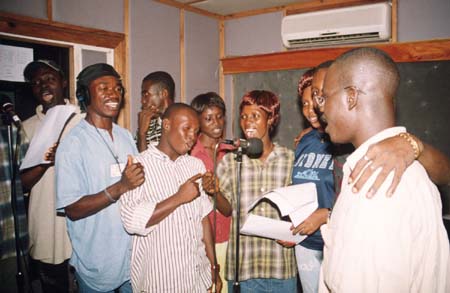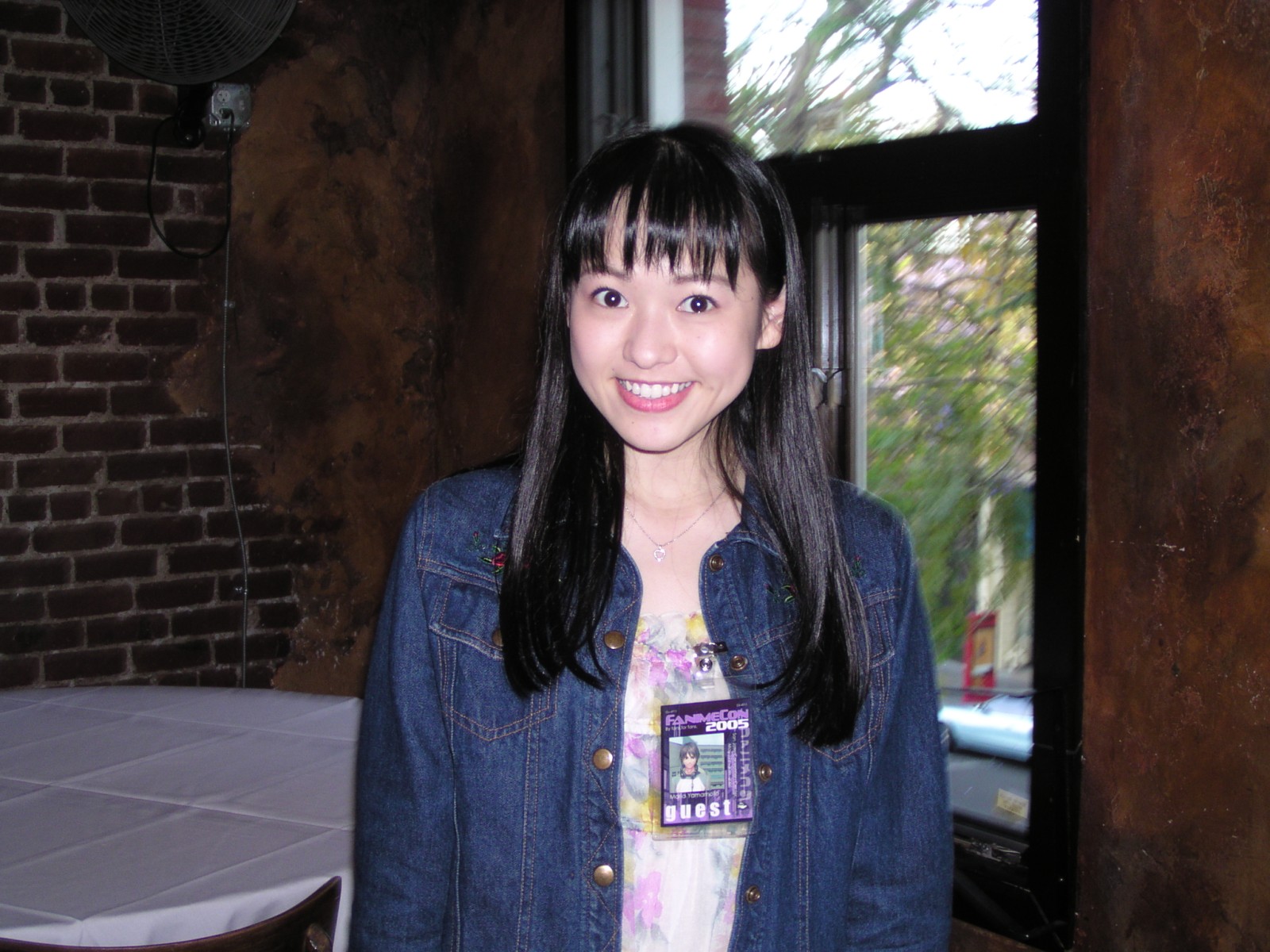|
Voice Foley
Voice foley is the non-talking " Foley" or sound effects, that a voice actor makes to enhance a performance. Such sounds include grunts, growls, groans, roars, breaths, wheezing, humming and many more, usually in animals and other creatures. See also * Michael Winslow * Foley (filmmaking) * Voice acting in Japan Voice acting in Japan is an industry where actors provide voice-overs as characters or narrators in media including anime, video games, Radio drama#Japan, audio dramas, Television advertisement, commercials, and dubbing for non-Japanese film ... Acting Sound effects Sound recording {{Film crew ... [...More Info...] [...Related Items...] OR: [Wikipedia] [Google] [Baidu] |
Foley (filmmaking)
In filmmaking, Foley is the reproduction of everyday sound effects that are added to films, videos, and other media in post-production to enhance audio quality. It is named after sound-effects artist Jack Foley. Foley sounds are used to enhance the auditory experience of a movie. They can be anything from the swishing of clothing and footsteps to squeaky doors and breaking glass. Foley can also be used to cover up unwanted sounds captured on the set of a movie during filming, such as overflying airplanes or passing traffic.Singer, Philip R. "Art of Foley". Marblehead Publishing Co. Web. 1 July 2010. Places where the Foley process takes place are often referred to as a Foley stage or Foley studio. A Foley artist recreates the realistic ambient sounds that are portrayed in the film. The props and sets of a film often do not react the same way acoustically as their real-life counterparts, requiring filmmakers to Foley the sounds. The best Foley art is so well integrated into a fi ... [...More Info...] [...Related Items...] OR: [Wikipedia] [Google] [Baidu] |
Sound Effect
A sound effect (or audio effect) is an artificially created or enhanced sound, or sound process used to emphasize artistic or other content of films, television shows, live performance, animation, video games, music, or other media. In motion picture and television production, a sound effect is a sound recorded and presented to make a specific storytelling or creative point ''without'' the use of dialogue or music. Traditionally, in the twentieth century, they were created with Foley (filmmaking), Foley. The term often refers to a process applied to a recording, without necessarily referring to the recording itself. In professional motion picture and television production, dialogue, music, and sound effects recordings are treated as separate elements. Dialogue and music recordings are never referred to as sound effects, even though the processes applied to such as reverberation or flanging effects, often are called ''sound effects''. This area and sound design have been s ... [...More Info...] [...Related Items...] OR: [Wikipedia] [Google] [Baidu] |
Voice Acting
Voice acting is the art of performing a character or providing information to an audience with one's voice. Performers are often called voice actors/actresses in addition to other names. Examples of voice work include animated, off-stage, off-screen, or non-visible characters in various works such as films, dubbed foreign films, anime, television shows, video games, cartoons, documentaries, commercials, audiobooks, radio dramas and comedies, amusement rides, theater productions, puppet shows, and audio games. The role of a voice actor may involve singing, most often when playing a fictional character, although a separate performer is sometimes enlisted as the character's singing voice. A voice actor may also simultaneously undertake motion-capture acting. Non-fictional voice acting is heard through pre-recorded and automated announcements that are a part of everyday modern life in areas such as stores, elevators, waiting rooms, and public transport. Voice acting is recognize ... [...More Info...] [...Related Items...] OR: [Wikipedia] [Google] [Baidu] |
Michael Winslow
Michael Leslie Winslow (born September 6, 1958) is an American actor, comedian, and beatboxer billed as The Man of 10,000 Sound Effects for his ability to make realistic sounds using only his voice. He is best known for his roles in all seven ''Police Academy'' films as Larvell Jones. He has also appeared in ''Spaceballs'', ''Cheech and Chong's Next Movie'', '' Nice Dreams'', ''The Love Boat'', and commercials for Cadbury and GEICO. Early life Winslow was born in Spokane, Washington, the son of Verdie and Robert Winslow. He grew up at Fairchild Air Force Base near Spokane, and later attended the Lisa Maile School of Acting, Modeling, and Imaging. According to his own account, Winslow had few friends growing up. To pass time, he would imitate the sounds of engines, animals, flatulence, or anything that made noise. Following high school and college, he performed in nightclubs and theaters, where his sound imitation skills won him positive appraisal and enough money to move to a ... [...More Info...] [...Related Items...] OR: [Wikipedia] [Google] [Baidu] |
Voice Acting In Japan
Voice acting in Japan is an industry where actors provide voice-overs as characters or narrators in media including anime, video games, Radio drama#Japan, audio dramas, Television advertisement, commercials, and dubbing for non-Japanese films and television programs. In Japan, and actresses have devoted fan clubs due to a crossover with the Japanese idol, idol industry, and some fans may watch a show merely to hear a particular voice actor. Many voice actors have concurrent singing careers and have also crossed over to live-action media. There are around 130 voice acting schools in Japan. Broadcast companies and talent agencies often have their own troupes of vocal actors. Magazines focusing specifically on voice acting are published in Japan, with ''Voice Animage'' being the longest running. The term character voice (abbreviated CV) has been commonly used since the 1980s by such Japanese anime magazines as ' and ''Newtype'' to describe a voice actor associated with a part ... [...More Info...] [...Related Items...] OR: [Wikipedia] [Google] [Baidu] |
Acting
Acting is an activity in which a story is told by means of its enactment by an actor who adopts a character—in theatre, television, film, radio, or any other medium that makes use of the mimetic mode. Acting involves a broad range of skills, including a well-developed imagination, emotional facility, physical expressivity, vocal projection, clarity of speech, and the ability to interpret drama. Acting also demands an ability to employ dialects, accents, improvisation, observation and emulation, mime, and stage combat. Many actors train at length in specialist programs or colleges to develop these skills. The vast majority of professional actors have gone through extensive training. Actors and actresses will often have many instructors and teachers for a full range of training involving singing, scene-work, audition techniques, and acting for camera. Most early sources in the West that examine the art of acting (, ''hypokrisis'') discuss it as part of rhetoric. Hist ... [...More Info...] [...Related Items...] OR: [Wikipedia] [Google] [Baidu] |
Sound Effects
A sound effect (or audio effect) is an artificially created or enhanced sound, or sound process used to emphasize artistic or other content of films, television shows, live performance, animation, video games, music, or other media. In motion picture and television production, a sound effect is a sound recorded and presented to make a specific storytelling or creative point ''without'' the use of dialogue or music. Traditionally, in the twentieth century, they were created with Foley (filmmaking), Foley. The term often refers to a process applied to a recording, without necessarily referring to the recording itself. In professional motion picture and television production, dialogue, music, and sound effects recordings are treated as separate elements. Dialogue and music recordings are never referred to as sound effects, even though the processes applied to such as reverberation or flanging effects, often are called ''sound effects''. This area and sound design have been s ... [...More Info...] [...Related Items...] OR: [Wikipedia] [Google] [Baidu] |


